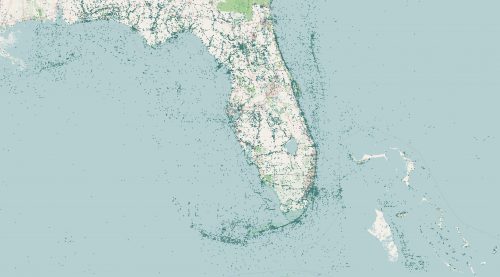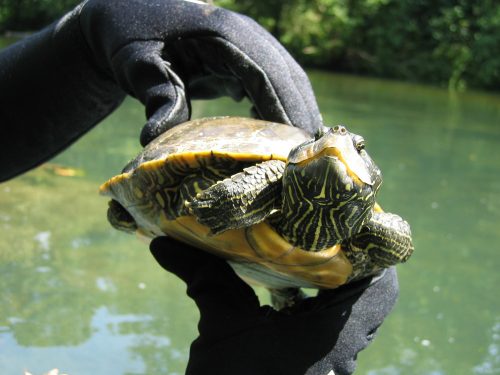
GAINESVILLE, Fla. — Florida Museum of Natural History visitors can learn how scientists use the museum’s diverse collections to tackle world issues in the new “Mapping the Museum’s Collections” gallery exhibit.
The two high-resolution maps have millions of points plotted to create a visual representation of each artifact within the collections and where it was discovered, illustrating the global reach of the museum’s research.
Of the museum’s 40 million specimens and artifacts, the exhibit highlights 10 objects to help explore some of today’s most pressing scientific dilemmas.
“This exhibit showcases how the work done by museum researchers addresses major world issues such as climate change, biodiversity loss, cultural heritage and human health,” said Jonnie Dietz, Florida Museum exhibit developer and outreach coordinator.

Scientists are digitally recording every specimen and artifact within the museum to allow anyone to browse, download and utilize the information from their own computer for free. By digitizing objects, researchers can essentially move objects out of the museum’s drawers and into people’s hands.
“We want everyone to have the ability to access our collections and specimens,” Dietz said. “These valuable records will be available in someone’s living room or a university on the other side of the world.”
The exhibit, located in the Denny Family Gallery, also includes an interactive magnetic board where visitors can create a collection-themed poem using words printed on colorful, magnetic strips.
For more information, call 352-846-2000 or visit www.floridamuseum.ufl.edu/exhibits/mapping.
-30-
Writer: Catalina Ruiz, PRintern@flmnh.ufl.edu
Source: Jonnie Dietz, 352-273-2048, jdietz@flmnh.ufl.edu
Media contact: Paul Ramey, 352-273-2054, pramey@flmnh.ufl.edu